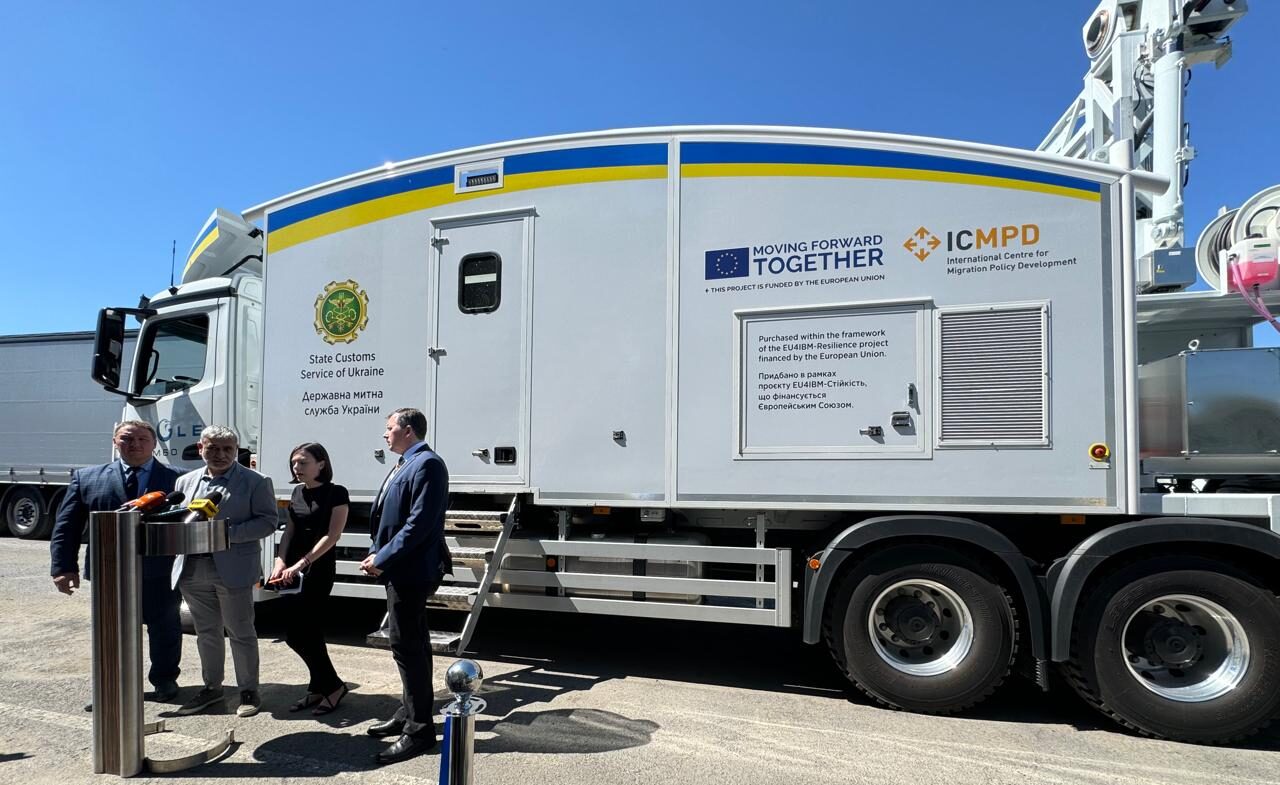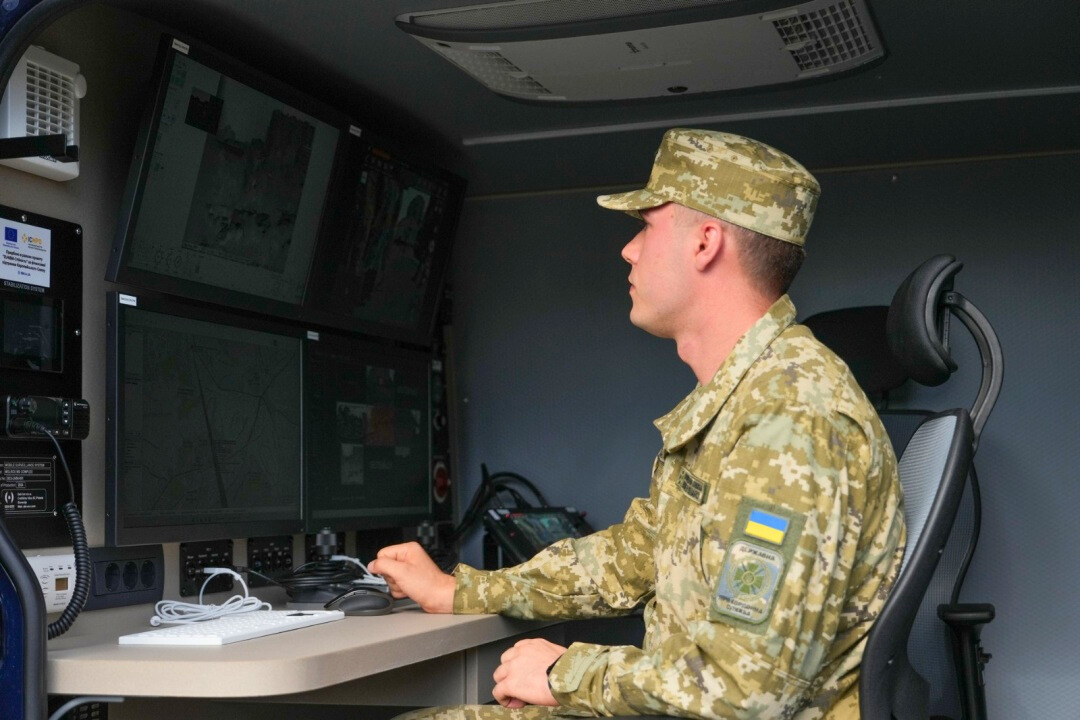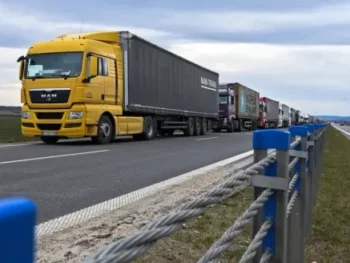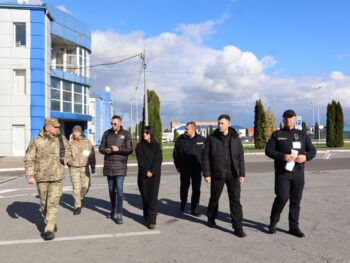Despite the full-scale war, Ukraine’s Border Guard and Customs Services continue to demonstrate progress in reforming and strengthening their capacities, including through active support from international partners. This was highlighted during the 5th meeting of the EU4IBM-Resilience Project Steering Committee, held on 3 July 2025.
Over the past six months, the EU4IBM-Resilience project, in cooperation with its beneficiaries, has implemented a number of important deliveries and initiatives. In the framework of its comprehensive work on cross-border trade facilitation, two additional Rapiscan Eagle M60 mobile scanners were provided to the State Customs Service of Ukraine, which are now being commissioned and accompanied by comprehensive personnel training. To ensure uninterrupted operation of existing stationary scanning systems, the project installed uninterruptible power sources and stabilizers at seven BCPs. Additionally, modern weighing complexes with automatic license plate recognition were set up at five checkpoints, significantly speeding up control procedures.
Earlier, the State Border Guard Service received five mobile thermal imaging complexes, which have been actively used over the past months and proved effective at the “green” border. Procurement of seismic surveillance systems is currently underway. At the same time, the project has provided equipment for a mobile data center. Special attention was also being given to providing psychological support to Border Guard personnel, which is scheduled to start soon.
A separate focus of the Steering Committee was on anti-corruption measures: a representative of the State Border Guard Service highlighted that the EU4IBM-Resilience project is the one promoting a comprehensive approach to preventing corruption in border agencies. Project experts conducted an in-depth analysis of relevant practices in Ukraine and abroad and provided recommendations; specialized training with the participation of Ukrainian and European experts also took place over the past months, and modern equipment and licenses were provided for internal prevention and communication by the SBGS. Preparations are currently underway to implement a pilot project using body cameras in border units.
Significant progress has also been made in human resources: the adaptation package for new employees has been implemented, a mentorship plan approved, and analytical reviews of EU practices in personnel planning and psychological candidate selection conducted. The Customs Service, in turn, received additional training in data analysis and auditing, as well as extended access to databases for risk checks and anti-corruption procedures.

“Our efforts help maintain and strengthen the capabilities of border guards and customs officers during the war—from equipment to institutional changes. We are proud to have achieved tangible results under challenging conditions,” emphasized Vyacheslav Toporov, EU4IBM-Resilience Project Manager.
European partners, for their part, emphasized that the project not only supplies equipment but also fosters long-term changes.
“The project has proven that it can respond to wartime challenges while supporting reforms. Its true value lies in long-term changes in institutional culture and preparing Ukraine for EU membership,” noted Barbara Rotovnik, Sector Manager of the EU Delegation in Ukraine.
Feedback from beneficiaries was very positive – both during the 3 July meeting and during visits by DG MOVE and TAXUD representatives to the border in June 2025, as well as at the equipment handover ceremony attended by the EU Ambassador Katarína Mathernová. The feedback confirmed not only the practical outcome of the project’s work but also a high level of trust among the parties concerned. Based on this experience, new initiatives are already being developed to strengthen transparency and resilience of border institutions while aligning with Ukraine’s EU integration priorities.

The EU4IBM-Resilience Project, valued at over €20 million, has been extended until February 2026. In the coming months, it will focus on completing planned deliveries, personnel training, implementing anti-corruption solutions, and strategic planning. This will further contribute to helping Ukraine confidently continue its path toward EU integration and prepare for responsibility for securing over 3,000 km of potential external EU borders.





